第1章 CHAPTER THE FIRST(1)
Madame Pratolungo presents Herself You are here invited to read the story of an Event which occurred in an out-of-the-way corner of England, some years since.
The persons principally concerned in the Event are:--a blind girl; two (twin) brothers; a skilled surgeon; and a curious foreign woman. I am the curious foreign woman. And I take it on myself--for reasons which will presently appear--to tell the story.
So far we understand each other. Good. I may make myself known to you as briefly as I can.
I am Madame Pratolungo--widow of that celebrated South American patriot, Doctor Pratolungo. I am French by birth. Before I married the Doctor, I went through many vicissitudes in my own country. They ended in leaving me (at an age which is of no consequence to anybody) with some experience of the world; with a cultivated musical talent on the pianoforte; and with a comfortable little fortune unexpectedly bequeathed to me by a relative of my dear dead mother (which fortune I shared with good Papa and with my younger sisters). To these qualifications I added another, the most precious of all, when I married the Doctor; namely--a strong infusion of ultra-liberal principles. _Vive la Re'publique!
Some people do one thing, and some do another, in the way of celebrating the event of their marriage. Having become man and wife, Doctor Pratolungo and I took ship to Central America--and devoted our honey-moon, in those disturbed districts, to the sacred duty of destroying tyrants.
Ah! the vital air of my noble husband was the air of revolutions. From his youth upwards he had followed the glorious profession of Patriot.
Wherever the people of the Southern New World rose and declared their independence--and, in my time, that fervent population did nothing else--there was the Doctor self-devoted on the altar of his adopted country. He had been fifteen times exiled, and condemned to death in his absence, when I met with him in Paris--the picture of heroic poverty, with a brown complexion and one lame leg. Who could avoid falling in love with such a man? I was proud when he proposed to devote me on the altar of his adopted country, as well as himself--me, and my money. For, alas! everything is expensive in this world; including the destruction of tyrants and the saving of Freedom. All my money went in helping the sacred cause of the people. Dictators and filibusters flourished in spite of us. Before we had been a year married, the Doctor had to fly (for the sixteenth time) to escape being tried for his life. My husband condemned to death in his absence; and I with my pockets empty. This is how the Republic rewarded us. And yet, I love the Republic. Ah, you monarchy-people, sitting fat and contented under tyrants, respect that!
This time, we took refuge in England. The affairs of Central America went on without us.
I thought of giving lessons in music. But my glorious husband could not spare me away from him. I suppose we should have starved, and made a sad little paragraph in the English newspapers--if the end had not come in another way. My poor Pratolungo was in truth worn out. He sank under his sixteenth exile. I was left a widow--with nothing but the inheritance of my husband's noble sentiments to console me.
I went back for awhile to good Papa and my sisters in Paris. But it was not in my nature to remain and be a burden on them at home. I returned again to London, with recommendations: and encountered inconceivable disasters in the effort to earn a living honorably. Of all the wealth about me--the prodigal, insolent, ostentatious wealth--none fell to my share. What right has anybody to be rich? I defy you, whoever you may be, to prove that anybody has a right to be rich.
Without dwelling on my disasters, let it be enough to say that I got up one morning, with three pounds, seven shillings, and fourpence in my purse; with my fervid temper, and my republican principles--and with absolutely nothing in prospect, that is to say with not a halfpenny more to come to me, unless I could earn it for myself.
In this sad case, what does an honest woman who is bent on winning her own independence by her own work, do? She takes three and sixpence out of her little humble store; and she advertises herself in a newspaper.